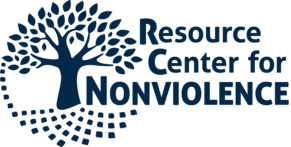
It’s no secret schools suffer from racial bias and disparity. Teachers discipline Black students more than white classmates for similar offenses and, according to a recent study, an increase in the discipline or achievement gap between white and black students predicted a rise in the other.
But if schools want to change, who can they call?
Enter Enid Lee, antiracist professional development consultant.
Born on the tiny island of Monserrat, Lee taught school in the Caribbean and Canada before working with administrators.
As the first Race and Ethnic Relations Supervisor in a Toronto school district, Lee worked to ensure principles of equity around race and ethnicity were embedded in all aspects of education. Lee said the most effective strategy to create change was to point out existing policies.
“If you know what the organization says it’s supposed to be doing , it actually gives you quite a bit of leverage.”
“Any organization that has the word ‘all’ in its mission and vision statement, has work to be done around equity and justice.”
Lee extends this advice to teachers, parents and students seeking to make change in schools, or any organization.
“Even though I have worked with administrators, I have worked with a lot with teachers, parents and students. I have encouraged teachers to say, whatever is it that’s on the books, is what we are expected to do here. If we simply did what we said we were about, we could begin the conversation.”
“It’s very simple because we know in our hearts, and in our data, that we are not meeting ‘all’, it’s gender race, class, sexual orientation, we know we not meeting ‘all’, so that’s why we are having this conversation.”
Lee will speak at RCNV’s Annual Dinner on Friday, November 2 at Peace United Church, following an auction and vegetarian dinner.
The title of Lee’s speech—“Marching with Martin and Beyond with Justice, Joy and Generosity” was inspired by a question… what action do we take next?
Lee recalls running professional development workshops where administrators insisted they were exempt from participating in race-based affinity discussion groups.
“Many white people, but not only white people, will say I don’t need to go to the affinity group because I have marched with Martin, and so what I want to get us to think about in this talk is what else is there to do now that we have marched with Martin?”
For Santa Cruz County, this means creating more diversity in leadership. Adding people of color to committees and organization is only the beginning—we must also consider the distribution of power.
“When groups want to be more diverse, what work does that include so that you don’t just have bodies of different colors, but true centralized experiences of people from other contexts than your own?”
“They need to change what’s in the center to make it much wider and to learn from it. Santa Cruz, and places that have a liberal, even radical, tradition, can be the hardest ones to get down and look at what needs to be done, even in interactions and in how power is distributed.”
Lee also cautions against paternalism in organizing efforts, highlighting immigrants rights.
“People many times want to do the right thing, but are not seeing you quite as an equal human being, like you’re a junior human being that they have to bring along. It’s something we have to work on because it influences how we see the people in the organizing around immigration and immigrants and so forth. Then another perspective is how you, as a personal color, resist that and say, ‘I do have something to say and my life didn’t just get started once I arrived here’.”
And as for justice, joy and generosity?
“I want us to have a sense of celebration as we do the work, even though it’s hard and even though it’s not complete. A sense that, despite everything, there is a confidence that we have that we’re going to be working towards that satisfaction.
“Generosity is very necessary.”
“We’ve got to have a bigger picture than we have. We need to disband the spirit of cruelty that characterizes so much of public life.”
Lee looks forward to speaking at the dinner and welcomes audience responses and questions.
“The thing is I enjoy talking a lot and I also enjoy listening a lot so at least I’m hoping we have at least half and half. I like questions.”

